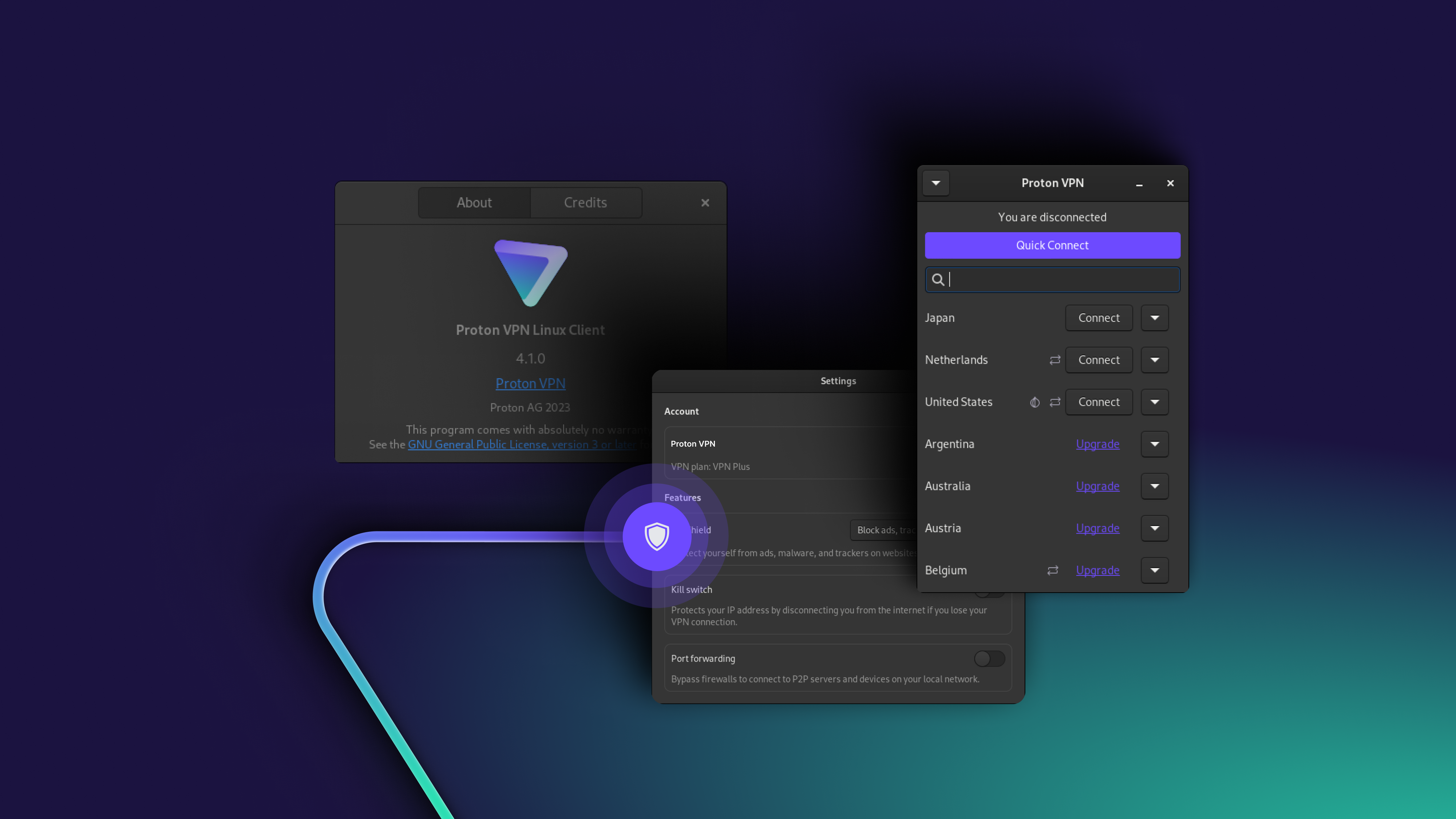Ditch Big Tech without compromises with new Proton VPN Linux app
Linux users can now enjoy the same features they have on other devices

Linux VPN users can now enjoy the same functionality they have on other devices as a popular provider just launched an all-new application.
The painful need to compromise on features and design for the sake of improved privacy is well-known to all Linux loyalists. However, Proton VPN claims to be committed to helping all users—no matter the device they use—to "break free from Big Tech and use a free operating system with privacy as its core."
That's why, despite already including a full VPN service for Linux, the provider kept listening to its community's requests for something better.
All-new Proton Linux VPN
"As long-time Linux users ourselves, we're aware of the often lackluster software options available on Linux. Too often companies don’t put in the time or effort to make sure Linux users can have the same functionality or user experience that’s offered to Mac or Windows users," said Samuele Kaplun, Proton VPN lead.
As mentioned, the provider already included a VPN app for Linux in its offering for over two years. Proton VPN was also one of only a few services (together with Surfshark) to feature a graphic user interface (GUI). However, it wasn't perfect, and the provider decided to put the time and effort into delivering the full range of functionality and design benefits that its users truly need and deserve.
Talking about the work to rebuild the application from scratch, Proton said the main challenge has been coping with the fragmentation of distribution in the Linux market. "A ubiquitous problem is that trying to support all the various networking aspects of different distributions from the beginning often leads to custom solutions that create compatibility and stability issues," a spokesperson told me.
That's why the team of developers decided to take an alternative route. They started with the most used and up-to-date versions of Debian, Ubuntu, and Fedora, gradually adding support for other distributions in the future.
When we released our new Linux app out of beta, we said we’d quickly follow up with adding Secure Core. We’re happy to announce it’s now available.Community feedback is critical – so make sure to leave your thoughts below. Find out more here: https://t.co/089Oa3Ppyr. pic.twitter.com/ex4Aq8twqyNovember 7, 2023
The new Proton VPN Linux app comes then equipped with advanced security and privacy features, all wrapped up in an "elegant, efficient and modular in design user interface."
Some of my favorites include DNS filtering to block intrusive ads, trackers, and malware; NetShield, a kill switch to make sure your IP address isn't leaked even when your connection drops; its very own VPN Accelerator technology to deliver performance up to 400% faster over large distances; port-forwarding to improve P2P activities; and Secure Core, which reroutes your internet traffic via an extra secure server before connecting you to a second server location of your choice.
The range of security and privacy features is also expected to grow in the future to match Proton's applications across all other platforms. Further plans also include adding support for the popular WireGuard protocol and a command line interface.
At the time of writing, users can use OpenVPN DCO, which the provider promises will deliver identical speed performance, and, if a GUI is a must-have for you, Proton also suggests using the old app until then.
All in all, Proton's spokesperson told me: "We think everyone deserves access to security and privacy, and our ambition is that all users, no matter which operating system they use, should be able to enjoy these benefits without compromising."
We test and review VPN services in the context of legal recreational uses. For example: 1. Accessing a service from another country (subject to the terms and conditions of that service). 2. Protecting your online security and strengthening your online privacy when abroad. We do not support or condone the illegal or malicious use of VPN services. Consuming pirated content that is paid-for is neither endorsed nor approved by Future Publishing.
Sign up for breaking news, reviews, opinion, top tech deals, and more.

Chiara is a multimedia journalist committed to covering stories to help promote the rights and denounce the abuses of the digital side of life – wherever cybersecurity, markets, and politics tangle up. She believes an open, uncensored, and private internet is a basic human need and wants to use her knowledge of VPNs to help readers take back control. She writes news, interviews, and analysis on data privacy, online censorship, digital rights, tech policies, and security software, with a special focus on VPNs, for TechRadar and TechRadar Pro. Got a story, tip-off, or something tech-interesting to say? Reach out to chiara.castro@futurenet.com